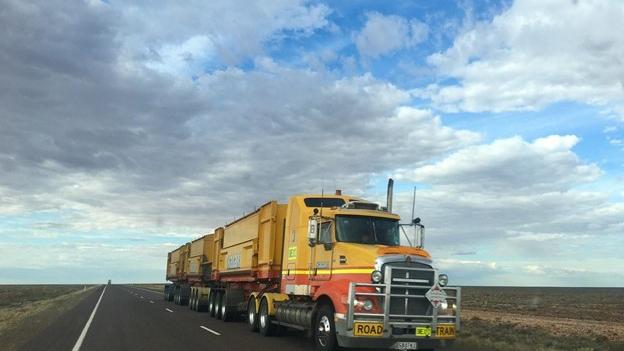When Is the Trucking Company At Fault for an Accident?

Truck accidents are particularly serious because of the huge mass involved in the vehicles and the catastrophic damage that just one truck can cause on the road. If you’ve been hit by a truck, you may be able to sue the trucking company for damages under a number of circumstances. However, it depends in large part on the company’s relationship to the driver and exactly why the accident occured.
The lurking danger of trucks on the road
Being a truck driver is hard work. Long hours, little sleep, and little to do other than drive can lead to tense and sometimes dangerous moments on the highway. According to the Federal Motor Carrier Safety Association, there are around half a million large truck accidents each year, with roughly one percent of them fatal.
Common causes of truck accidents include:
- Driver fatigue
- Lack of training
- Maintenance failures
- Driving while taking speed
- Driving under the influence of alcohol
- Speeding
- Reckless driving
- Running traffic lights or not properly following signals
- Bad weather
With that in mind, when does the responsibility fall on the driver, and when can it involve the trucking company as well?
Ownership and agency
Whether or not a trucking company is liable, meaning legally responsible and accountable, in an accident depends on the relationship that the company has to the driver. It is common for long haul goods companies to contract out the shipping of materials to an independent driver. This muddies the waters on liability.
A number of things must apply for the trucking company to be liable for a lawsuit following a truck accident. There first must be some sort of employment between the truck company and the driver. The driver must be employed by that company at the time of the accident. Finally, the driver must be expressly permitted to operate the truck by that company at the time of the accident. If all of those circumstances apply, the company may very well be liable for damages in most states.
Maintenance failures
The trucking company's failure to properly maintain their fleet if one of the primary leading causes of truck accidents. If it can be demonstrated that a company should have performed needed or even advisable repairs and maintenance to a truck which was then involved in an accident for related reasons, then that company is absolutely going to be liable for some very serious damages before a court of law.
Driver training
Let’s say that a driver made an error that caused an accident, particularly an error that should have been avoided as a result of proper training. After all, operating an 18-wheeler is very different from driving a Prius, and there are certain reactions and actions that need to be taken differently and are specifically tailored to a big truck driver.
If it is found that a truck driver made a mistake as a result of improper or not enough training, and assuming that the previous section’s criteria for company responsibility were met, then the trucking company will be held liable for damages as a result of their failure to provide proper and required training.
Other types of training that trucking companies need to offer include making sure that their commercial driver license (CDL) operators are aware of state, local, and federal regulations, such as the required amount of sleep or break time they must take.
If you’ve been in an accident involving a truck
In case any of this ever applies to you, as a non-truck driver, then there are some things you need to do if you’re involved in an accident with a long-haul truck. First, due to the likely occurrence of serious damages and injuries that will accompany a truck crash, you need to call 911 and get emergency services on the scene.
Make sure you collect any police reports that are filed after the accident, and photograph all damage to your own vehicle on the scene. Take down the information of any witnesses on the road as well, because your attorney will want to talk to them later and potentially have them testify in court. Lastly, keep copies of all bills you incur as a result of the accident.
More to Read:
Previous Posts:





